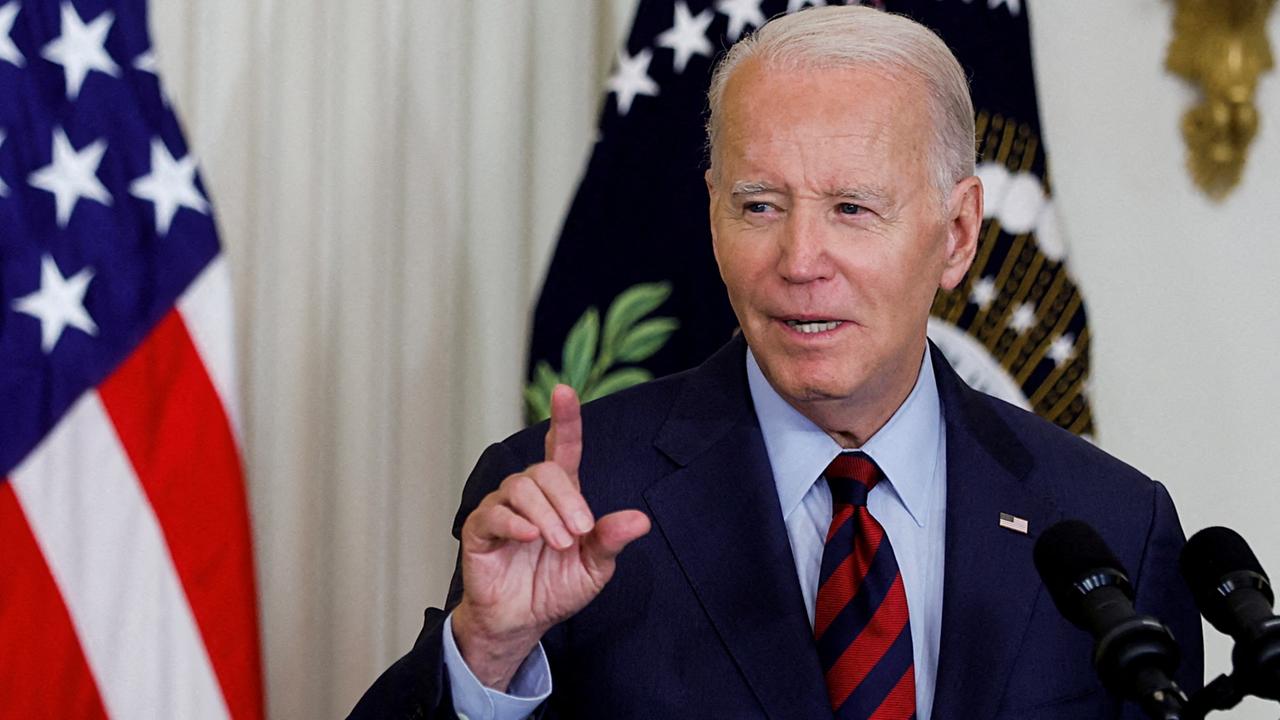What happens next after the ceasefire in the Gaza Strip? Since the beginning of the new Middle East war, US President Biden has emphasized that the end must be a two-state solution. But how realistic is this goal?
US President Joe Biden emphasizes at every opportunity: There must be a vision of what comes after the war in the Gaza Strip. This must be “a two-state solution.” What is meant is an independent Palestinian state that exists peacefully side by side with Israel. But numerous US presidents have failed to find such a lasting peace solution. And now of all times, after the worst escalation of violence in a long time, should there be a chance for this formula that has been tried for decades?
Even if all Hamas hostages were gradually released, even if the ceasefire that has now been negotiated was extended – even then Israel would continue the war in the Gaza Strip. Former US Middle East mediator Dennis Ross makes this clear: “The Israelis will not stop until the Hamas leadership is gone,” he says.
Ross worked for Republican President George Bush Sr., then for Democrats Bill Clinton and Barack Obama, and is now active at the Washington Institute, a think tank for Middle East policy. Ross believes President Biden’s insistence on the goal of a two-state solution is correct: “The core of the conflict is: two national movements are competing for the same country, two movements with fundamentally different identities. They will not be able to coexist in one state. A permanent state is the guarantee of an eternal prolongation of the conflict.”
“There will be a political reckoning in Israel”
Ross knows inside and out all the points at which previous negotiations have ultimately failed: the exact border, merging the separate Palestinian territories of the Gaza Strip and the West Bank, Israeli settlements, the return of Palestinian refugees, the status of Jerusalem – not to mention the constant threat of new violence.
In order to initiate the start of new negotiations, there must be a phase of reflection after the end of the current war, says Ross: “There will be a political reckoning in Israel. 77 percent of Israelis believe that Prime Minister (Benjamin) Netanyahu is responsible for the outbreak of war was.”
But the Palestinians also have to completely rethink: “Nobody on the Palestinian side has so far criticized or condemned what Hamas has done.” If the Palestinians want to convince the Israelis to consider two states, “they have to start by condemning Hamas terror,” Ross said.
“It takes at least three things”
Aaron David Miller, who also worked in Middle East mediation for several US presidents and is now at the Carnegie Endowment for International Peace, names further conditions for a new beginning. To have any chance of thinking toward a two-state solution, you need at least three things, says Miller. “Number one: leaders on both sides who are masters of their own house and not prisoners of an ideology. We don’t have that. Number two: There needs to be a sense of responsibility. That means Israelis and Palestinians themselves have to be more convinced of the need for a negotiated solution than every external mediator. And thirdly, we need effective mediation.”
With Netanyahu on the Israeli side, Mahmoud Abbas on the Palestinian side and a US President Biden entering an election year in 2024, Miller sees none of the three requirements fulfilled.
What role does the US election campaign play?
“The Biden administration’s top goal between now and November 2024 is not to broker a two-state solution in the Middle East. It is to defeat the likely Republican opponent.” This means Donald Trump.
When it comes to the US election campaign, Ross has a different opinion. He says: Precisely because Biden is threatening to run away from young voters in particular after his pro-Israel positioning, he has “additional incentive to get involved in the Middle East” during the election campaign – for more humanitarian aid, for an end to the war and for steps towards new peace negotiations .
The UN, Europeans and Arab states must take part
In any case, Miller expects the war to last for weeks, if not months, and a subsequent “long phase of uncertainty and transition.” Ross and Miller emphasize that a kind of step-by-step plan towards new negotiations can only work if, in addition to the USA, the United Nations, the Europeans and the Arab states, including the powerful Saudi Arabia, take on a complementary, constructive role.
Ross’s conclusion is rather optimistic: “If you ask me whether it is possible to do something, I say: Not only is it possible, it has to happen!”
Miller, rather pessimistically, sums up the long-term goal of a two-state solution: “At the moment I would be disbelieving myself if I said I see three leaders on the horizon, on the Israeli, Palestinian and American sides, who are willing and able “To make decisions that create an opportunity for this.”
Ralf Borchard, ARD Washington, tagesschau, November 24th, 2023 1:51 a.m





